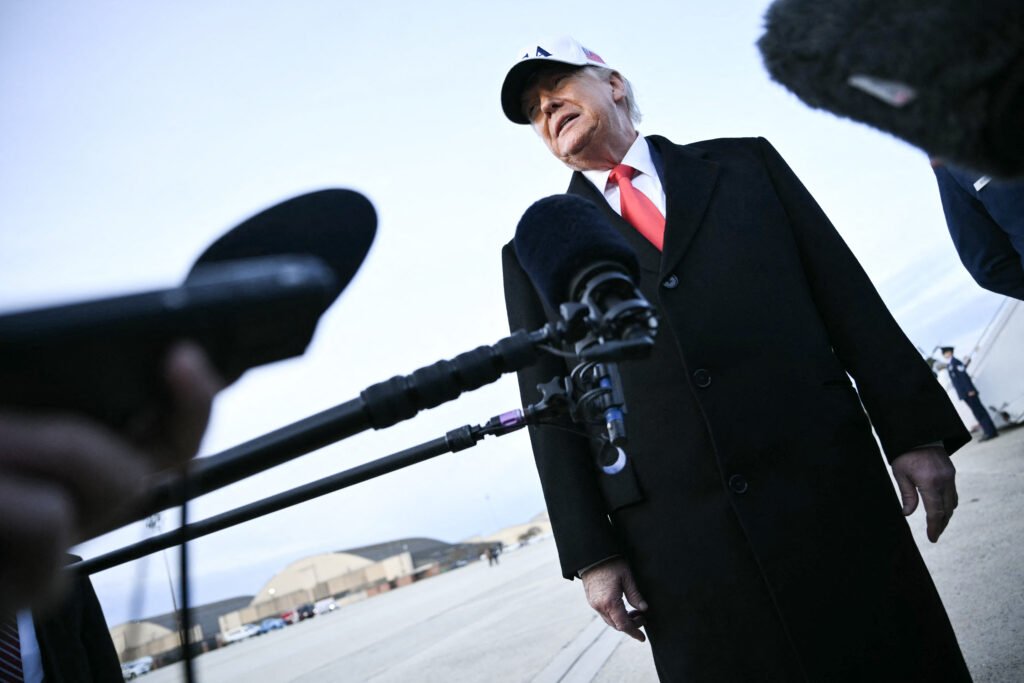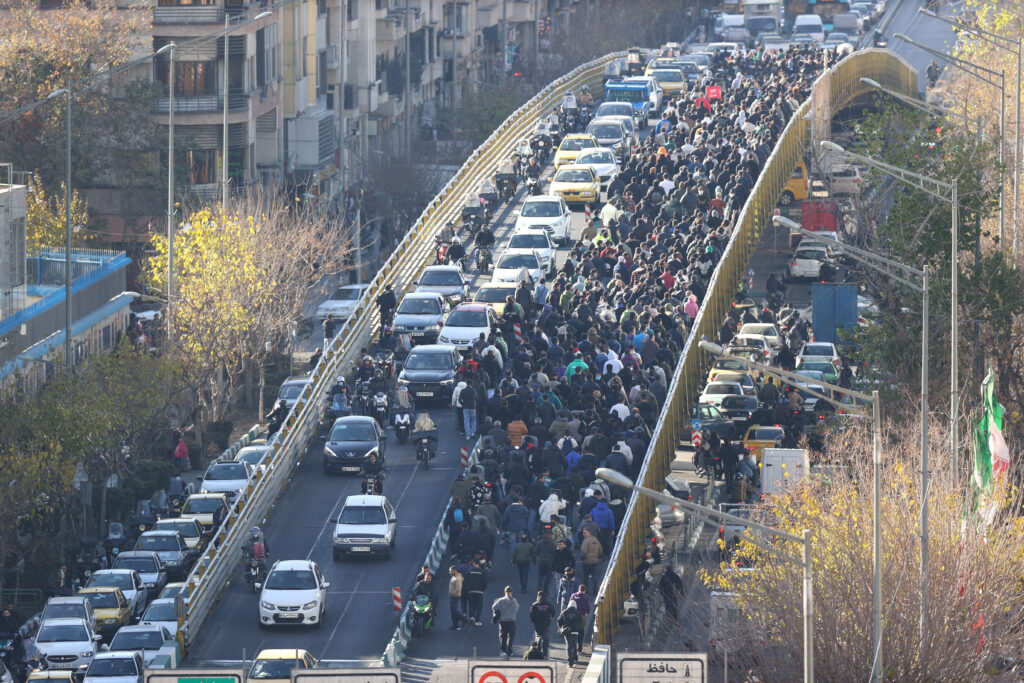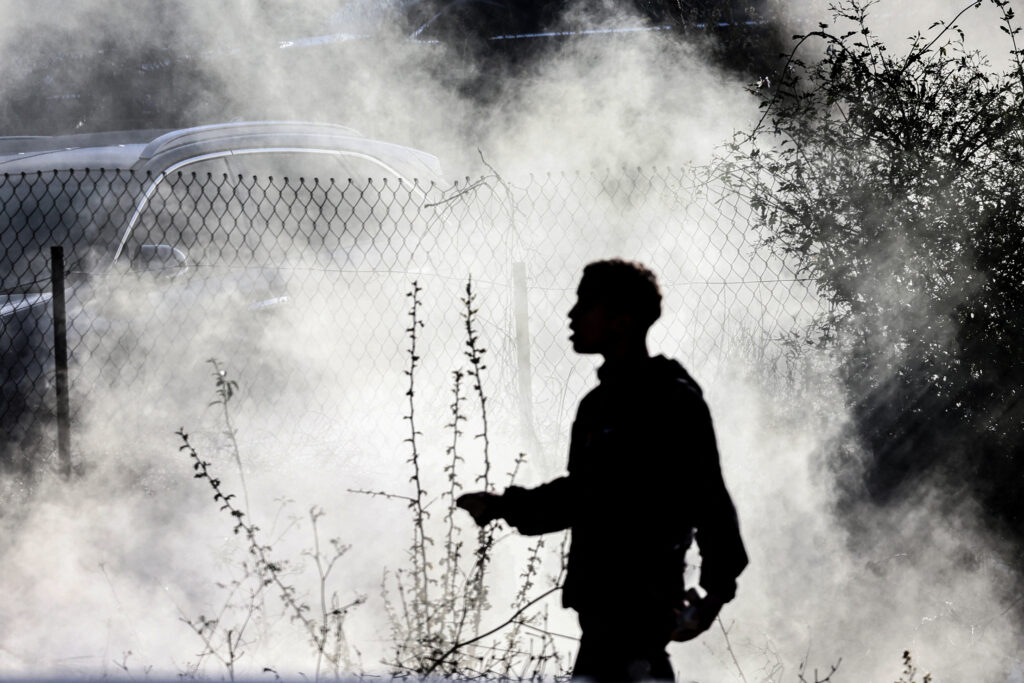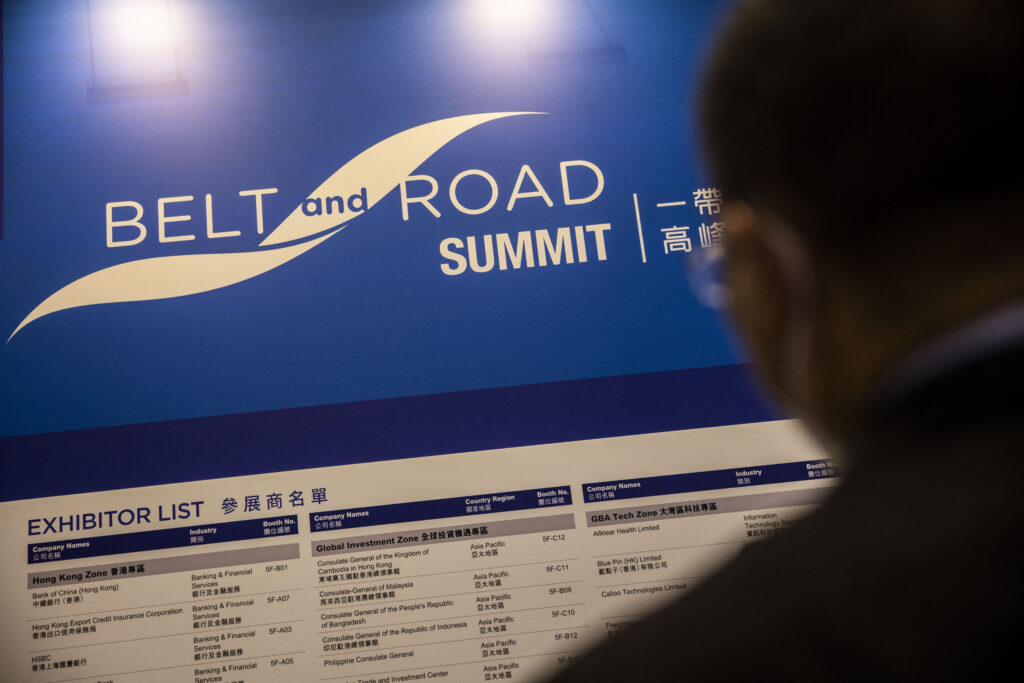Ukraine War Spotlights an Old Problem for the Middle East: Food (In)security
- -
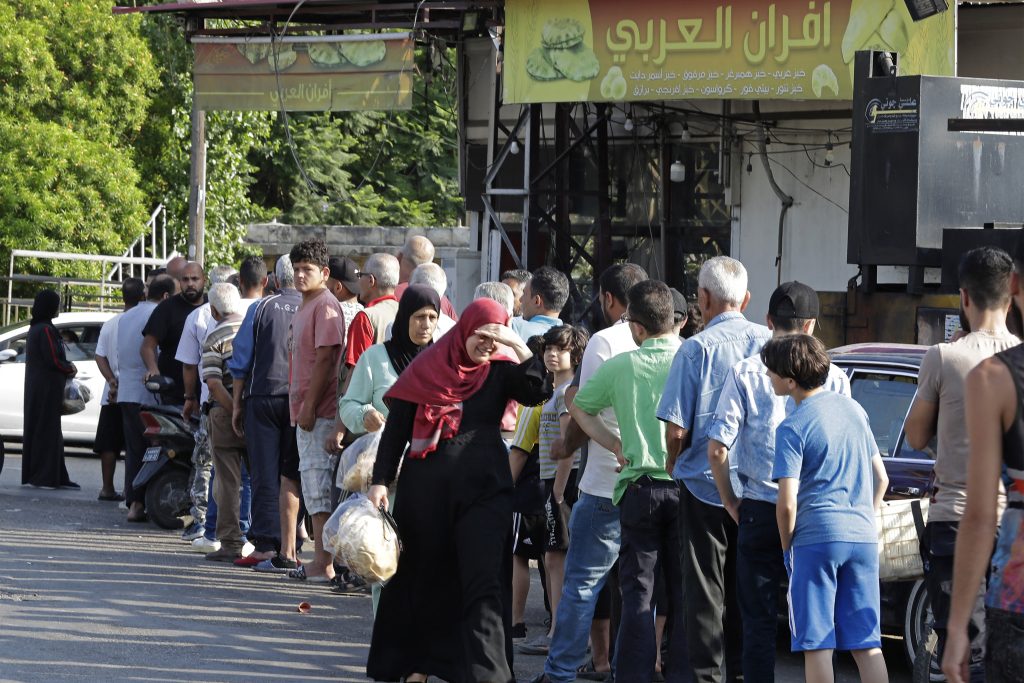
By Gyorgy Busztin, Visiting Research Professor, MEI-NUS
The Ukraine crisis has brought into sharp relief an uncomfortable truth that Middle Eastern countries have failed to acknowledge, much less respond to, in a concerted manner: Food security.
The arid region has long relied on imports to make up for what it cannot produce, particularly grain. For the richer nations, spending large amounts on the world market was par for the course. For the poorer ones, help often came via their oil-rich brethren, or the international community.
Half of the MENA region’s food is imported, rising to 90 per cent in Gulf Cooperation Countries. A third of the food consumed comprises wheat products subsidised by governments, according to the World Bank.
This ungainly, but manageable, situation ended abruptly when two of the world’s chief producers of grains and vegetable oil – two indispensables in the Middle Eastern diet – went to war.
Moscow anticipated that erasing Ukraine from the world map and absorbing it into Russia – where it historically belonged, according to Vladimir Putin, quoting Peter the Great – would be a cakewalk. It has instead turned into a quagmire for Russia, with many unanticipated consequences.
One of them was that neither Ukraine nor Russia remained in a position to serve their markets, of which the most exposed were their Middle Eastern clients – with Egypt at the top of the list, followed by Lebanon, Syria, and Iraq.
Global prices for wheat, one of Ukraine’s main agricultural exports, have risen some 16 per cent since Russia invaded in February. Russia has been blocking grain exports, targeting grain storage facilities, and even stealing food, say American and European officials. This amounts to a war crime, one European official said. Another One said Russia was working to convince regional audiences that the rising cost of food should be blamed on Western sanctions, not the war on Ukraine.
“What we hear in some African countries, in some Middle East countries, is that if there is food price inflation, it’s because of the EU or American sanctions, which is totally untrue,” said Ambassador Charles Fries, the deputy secretary-general for common security and defence policy and crisis response at the European External Action Service. “There is a battle of narratives.”
The presence of an Egyptian delegation at the St. Petersburg “world economic conference” indicates Moscow’s strategy is having some success. Egypt was there for the simple reason that it could not afford to stay away. Its reliance on imported grain, be it Ukrainian or Russian, is now at the mercy of Moscow. Cairo has desperately tried to unlock other sources, namely India, but it is doubtful if Delhi, which has initiated a food export ban of its own, would be able to help.
Egypt has been hostage to grain for millennia, and cannot afford to see its underprivileged millions denied bread, which is heavily subsidised by the government. The ‘aish, or baladi loaf, is at the centre of the undeclared social contract between people and government, and keeps the peace – as long as the baladi lasts. The scars of previous food riots have not faded, which is why reports indicate that despite the immense pressure on its coffers, the government has maintained the subsidised price of bread, although the size of the loaves has visibly shrunk. There has been some speculation that Egypt’s recent move to transfer sovereignty over two Red Sea islands to Saudi Arabia was made in return for money so it could keep the bread prices low. If true, it provides a textbook example of how food security is inseparable from national security – and sometimes even sovereignty.
Egypt’s food predicament, common throughout the Arab world, drives home the message: Guarantee your food security, or face the consequences. Riches can buy you anything so long as it is available. But what happens when it is not? The world food situation as far as grains are concerned is disquieting. Producers have become more protectionist, giving absolute priority to supplying their own internal markets – as Singapore’s own fresh chicken woes demonstrated vividly recently. Climate change, primarily recurring drought – or just the opposite, destructive floods – has provided another body blow. As a result, food prices have hit record highs.
Substituting wheat-based bread with other foods is a non-starter in a region whose diet has been dictated by climate, tradition, or even religion, for millennia. Bread cannot be replaced with potatoes, maize, or rice.
At a refugee camp in Iraq at the height of the war against the Islamic State, I heard displaced victims of war complain to me bitterly about being fed pasta. They were used to rice. I could not but agree with them. Examples of this abound elsewhere. It is why China is extremely sensitive to pork prices, and why there was much hand-wringing in Singapore when Malaysia banned fresh chicken exports. Diets are not to be tampered with, even under the most extreme circumstances.
The rich Arab countries of the Gulf have tried for decades to resolve the food (in)security problem, with little success. Some, like Saudi Arabia and the United Arab Emirates, bought or leased large tracts of arable land in countries such as Sudan to grow their own food. All went well until recurrent civil war-like conditions raised questions about the sustainability of such an approach. Of course, the ethics of growing food for export in countries that grapple with shortages – if not outright famine – raised even more questions. The lease arrangements created controversy in several Sub-Saharan African countries, where they were seen as land grabs, but ultimately did not help.
Perhaps the time has come for some rich Gulf nations to reconsider food production within their own boundaries, never mind the cost. During the reign of King Abdullah, Saudi Arabia initiated grain production in huge, irrigated areas of otherwise barren desert. This was certainly not a competitive approach – Saudi grain cost many times more than the imported variety – but provided the food security no imported grain could. Ultimately, the project was suspended on account of its high cost and elevated water salinity it induced in the aquifer. For others, like Iraq, with an abundance of arable land and water, it is time to get their act together and invest more heavily in agriculture and water management. Even Egypt is reviving its own local answer to grain imports – the Toshka Project to create a second Nile Valley in its Western Desert, which was begun under President Hosni Mubarak but later abandoned. It will be an expensive undertaking, but grain from it would be readily available, and not subject to a supplier’s whims or circumstances. It is a lesson learnt the hard way by Qatar, which had to scramble to ensure food security in the wake of the Blockade imposed on it by Saudi Arabia, Egypt, the UAE, and Bahrain in 2017. Doha no doubt spent a princely sum, including airlifting Holstein cows from Europe to produce the dairy products it needs – a venture so successful that it now an exporter of such goods.
The Russia-induced food supply disruption will doubtless inspire new approaches in those Middle Eastern countries that can afford them, chiefly the Gulf ones. Creating emergency stockpiles is another. Saudi Arabia has already built silos capable of storing three million tons of grain, for example. But for poorer nations, the prospects are bleak. The World Food Programme has already signalled that its efforts will be reduced, foreshadowing tragedy for strife-torn war Yemen and Syria, as well as Lebanon and Iraq, which have millions of aid-dependent refugees.
Weaponising food has been part of warfare since time immemorial. For those with illusions that the 21st Century would change things, Russia has provided a wake-up call. Countries must revive efforts at food security at a price they can afford. This is particularly critical for the poor countries of the Middle East, where food and security have always been inseparable. Famine-driven instability in the region could spark new waves of mass migration to Europe, which is no doubt among the Kremlin’s aims.
Paradoxically, it may be the old enemy, Israel, that rides to the rescue. The country has some semblance of food security, thanks to its revolutionary agricultural techniques. The Abraham Accords have already sparked agreements on agrotech between Israel and the Emirates. This could provide one more reason for reluctant Gulf states to look anew at the Accords via a holistic lens.
Thus far, much of the headlines on the Accords centre around possible defence cooperation between Israel and its new partners. But if the Israeli-UAE tie-up in the agricultural sector reaps rich rewards, the pact will provide answers to a regional problem that has been around for much longer than Iran has.
Image caption: People line up in front of a bakery to buy bread in Lebanon’s southern city of Sidon on June 22, 2022 as fuel and wheat shortage deepens. Photo by Mahmoud Zayyat / AFP
About the Author
Dr Gyorgy Busztin is Visiting Research Professor at the Middle East Institute, NUS.
A career diplomat and an academic, he served, between 2001 and 2011, as Hungary’s ambassador to Indonesia and subsequently, Iran. In 2011, Dr Busztin was appointed deputy envoy of the United Nations in Iraq, responsible for the political, analytical, electoral and constitutional support components of the UN’s mission in Iraq. He served at the level of assistant secretary-general until October 2017.
End Notes
[1] World Bank report, September 2021

